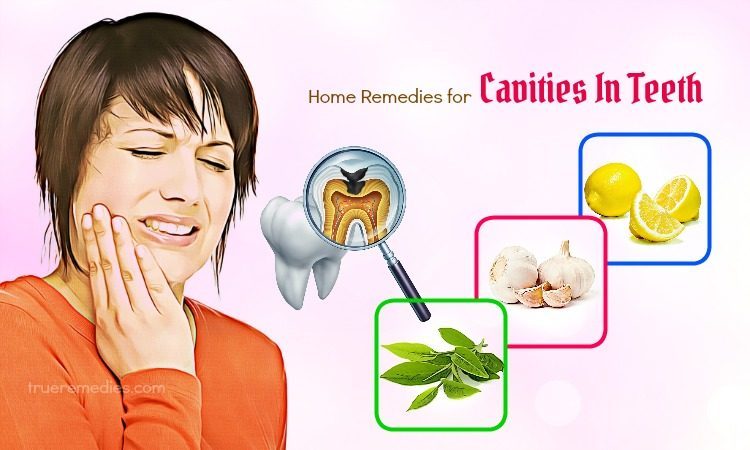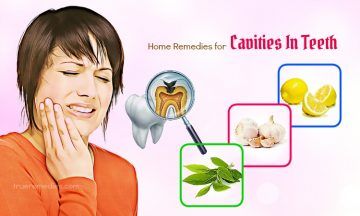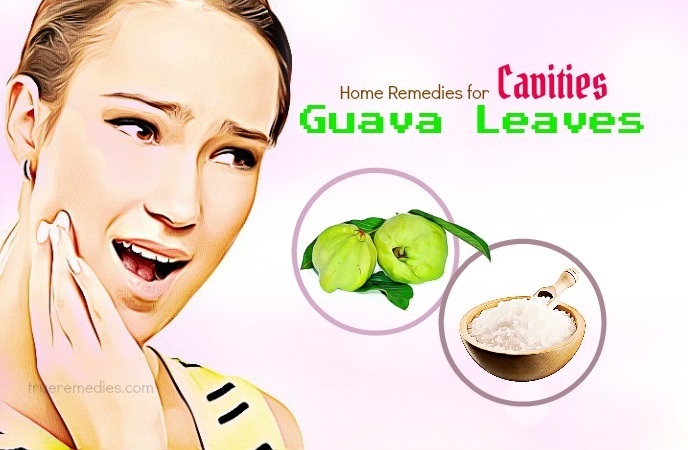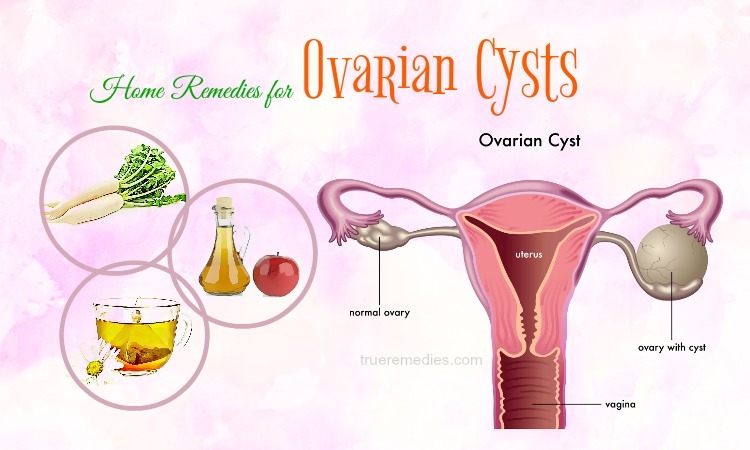Updated: 11/16/2019
CONTENTS
Cavities are a chronic disease that has been appeared for a long time. It is one of the main causes of tooth loss in young people. Cavities in teeth are very easy to appear if we do not have a good dental care regime, especially in children who are interested in sweet. If cavities in teeth are not detected in time, it quickly leads to corrosion into the marrow causing pain.
Are you worried about this disease? Do cavities in teeth often make your life more difficult? Are you worried about how to prevent or treat cavities in teeth? Don’t worry, the following article will help you. These measures are very simple and effective. They can be done right at your home. However, before that, let’s learn the necessary information about this disease to get the best view on it. Moreover, you can also determine the condition of your cavities in teeth in order to have the most appropriate treatment.
What Is Cavities In Teeth?
Cavities are the decay of areas of the tooth and develop into small holes. Cavities in teeth are caused by a combination of factors, including poor tooth cleaning, frequent snacking, and sugary drinks[1] [2] [3].
Cavities in teeth are one of the most common health problems in the world. It is especially common in children, but anyone with teeth can have cavities in teeth, including infants and seniors. Cavities in teeth are caused by bacteria, mainly Streptococcus mutans that cause tooth decay in the mouth. When food is sticky on the teeth, especially sugar and starch, after a few hours the bacteria will decompose food and create Acid eroding the enamel of the teeth into deep holes. Bacteria, acids, humus food on the surface of the teeth will form a sticky film called dental plaque, which is very sticky and is present on all surfaces. It also causes gum disease and inflammation around the teeth. The dental plaque is gradually mineralized by minerals in saliva and food that forms tartar.
Without proper treatment for cavities in teeth, cavities in teeth may cause severe toothache, infection, tooth loss, and other complications. Going to your dentist and brushing teeth regularly are great ways to prevent cavities in teeth.
TrueRemedies Partner Solutions

Need a Help from the Leading Expert Online, Available 24/7?
They’re all here and ready to answer your questions online or by phone. Keep asking questions until you get the answer you need.
The Harmful Effects Of Cavities In Teeth
Bacterial cavities accumulate in the jaw, leads to serious oral health problems, which may cause a number of other diseases, such as diabetes and respiratory problems.
- Make Teeth Weak
When cavities teeth get over a long period, the cavities in teeth will gradually reduce the possibility of chewing well. They are usually sensitive when hit by hot, cold, or acidic food, even by mouth breathing.
- Impair Memory
Norwegian scientists have shown that our teeth condition is closely related to the memory capacity of the brain. When the tooth is cavities, a region of the brain will be affected, and the sensitivity of other areas will be reduced. Cavities in teeth cause the narrowed brain arteries, so they interfere with brain activity. Dental diseases affect memory and increase the risk of confusion in the elderly[4].
- Cancer
Cavities in teeth are a direct cause of mouth cancer[5].
- Diabetes
When bacteria attack the surface of the tooth, then enter the enamel and dentin, It stimulates within the oral cavity and weakens the body’s ability to control its blood sugar. This leads to difficulties in converting sugar into energy. Therefore, the risk of diabetes is increasing[6].
What Are Common Causes Of Cavities In Teeth?
There are many main causes for cavities in teeth, including the following:
- Sugar: It has been proven that high sugar foods may affect cavities in teeth, and people who eat mostly fat and meat are less likely to have cavities[7].
- Bacteria: Scientists have proven that bacteria in the mouth are the main cause of cavities in teeth. Bacteria in the mouth are concentrated in the plaque or tartar, the plaque up to 70% of the bacterial weight. The plaque is the debris of food that is not cleaned after 24 hours will be associated with the bacteria. After 14 days, it will form tartar. Bacteria in the mouth dissolve the sugar into lactic acid, which causes the consumption of calcium in the tooth enamel, thus causing cavities in teeth[8].
- Due to the teeth: the quality of enamel and dentin depends on several inorganic substances, organic, in particular, calcium. In addition, fluoride works to protect enamel very well
How Are Cavities In Teeth Made?
- Plaque: Mouth is like many other parts of the body, naturally containing a variety of bacteria. Some of the highly-thriving bacteria in foods and beverages contain cooked sugars and starches, also known as starch fermentation. When carbohydrates are not cleansed of teeth, bacteria may convert them into acids. The bacteria, acids, saliva particles feed and then form plaque – a set of sticky gums. If you use the tongue to touch along the teeth, you may feel the plaque a few hours after brushing. Plaque is slightly coarser and more noticeable inside of the tooth, especially along the gum line[9].
- Plaque Attack Teeth: The mineral acid plaque attack on the hard outer surface of the teeth is called enamel. This causes erosion of small holes or holes in the enamel – cavities. Once spots of enamel are worn away, the bacteria and acid may reach the next layer of teeth, called dentin. This layer is softer and less resistant to acid than enamel.
- Continue To Destroy: Bacteria and acid continue to grow through the layers of the teeth, moving alongside the pulp, or the inside parts of the teeth. The pulp has nerves and blood vessels. The pulp becomes swollen and irritated by bacteria. The supporting bone may also participate. When teeth cavity is advanced, there may be a severe aching toothache, sensitivity, pain when biting or symptoms. The body may also respond to bacteria by sending white blood cells to fight infection. This may lead to tooth abscesses.
What Are Common Symptoms Of Cavities In Teeth?
These symptoms of cavities in teeth will help you recognize when you have cavities in teeth:
- Food Is Often Trapped In The Interstitial Or Dental Surfaces
Since cavities in teeth, bacteria create holes on the surface of the teeth or the sides of the teeth. The gap between the teeth is widened, creates favorable conditions for leftovers to trap in these teeth. Some people find it very uncomfortable for food to come into the teeth and often use toothpicks to take food out of teeth and invisibly break the enamel.
- Teeth Color Turn Into Dark
This is a sign that teeth are having nutrition problems because they are not nourished with essential substances from the pulp. Cavities in teeth are one of the leading causes disturbed in providing nutrients to teeth. If not detected and treated promptly, teeth may fall off due to lack of nutrition.
- Appearing White Spots On The Teeth
When the teeth are healthy, the outer glaze of the teeth is translucent, and the dentin’s color may be seen inside. White spots are the first signs of cavities in teeth, most people see but ignore this sign. They do not know that the process of cavities in teeth begins with the bacteria losing minerals, especially calcium in the enamel, which leads to the appearance of white spots.
- Sensitive Teeth
If you eat hot, cold, sweet or sour foods or when you breathe in cold air, you may have sensitive teeth, it is more likely that your cavities in teeth will reach the pulp.
- Some Teeth Are No Longer Chewable
When cavities in teeth reach the pulp and the roots begin to form pus, this will make some people find it difficult to chew on those teeth. This is a common sign in older people.
Who Is At Risk Of Cavities In Teeth?
Young children and the elderly are at high risk for cavities. In addition, people who have bad oral hygiene habits, and people who regularly eat sweets are also susceptible to cavities in teeth.
When To See A Doctor?
In case you have a toothache for a long time or some serious problem with your teeth such as rupture, shingles, etc. you should go to the dentist for advice. If sudden pain, affect your psychology, you should also see the dentist to relieve the pain.
In addition to the symptoms mentioned above, you also fall into other diseases, you must see a doctor immediately.
If you want to prevent this disease, or your condition is not too severe, you can fully apply the home remedies to treat cavities we will mention below.
After that, if you want to read more about natural remedies for other diseases, do not skip Home Remedies Page.
Top 10 Natural Home Remedies For Cavities In Teeth
1. Guava Leaves
Guava leaves is effective when it comes to home remedies for cavities. Guava leaves contain many essential oils, beta-sitosterol, alpha-limonene, and maslinic acid[10]. In particular, in young leaves, or young buds of guava leaves contain about 3% of resin and 7-10% of tannin. Guava leaves also contain antioxidants, antibacterial, anti-inflammatory. Guava leaves have anti-inflammatory and high antibacterial properties[11].
These properties may protect the oral health because they fight against oral pathogens such as Streptococcus oralis, Streptococcus mitis, Streptococcus mutans, and Lactobacillus casei, making guava become an effective home remedy for dental caries and dental plaques[12].
Method 1: Guava Leaves And Salts
To implement this method, please follow the steps below:
- Prepare 5-7 young leaves of guava (the young buds of guava are the best), 1/2 teaspoon of salt, a little warm water
- Crush guava leaves by a grinder
- Mix with salt and warm water, then stir until salt dissolved
- Use a filter to take the guava leaves juice to use
- You use cotton wool absorb the mixture of guava leaves and then rub to the gums and cavities teeth
To do this 3-4 times, the cavities in teeth will decrease significantly. Or you can perform cavities in teeth treatment by using a mixture of guava leaves juice to rinse mouth every day to kill bacteria.
Method 2: Guava Leaves And Vinegar
To implement this method, please follow the steps below:
- Prepare 5-7 guava leaves, one tablespoon of vinegar
- Crushed guava leaves and mixed with vinegar
- Use the mixture to apply onto cavities in teeth
- Leave it on your teeth for 10 minutes and then rinse your mouth with water
2. Green Tea
This is another must try home remedy in list natural home remedies for cavities in teeth. Green tea leaf contains many anti-bacterial, anti-inflammatory. It has an effective pain relief effect that is not only good for gums but also effective for tooth cavity[13].
In addition, green tea also contains fluoride that protects the enamel. Scientists have also discovered that green tea is effective against tooth decay, even if you add a little sugar to tea[14] [15].
Method 1: Just Green Tea
To implement this method, please follow the steps below:
- Prepare 1kg of green tea leaves and a little salt
- Wash green tea leaves, then remove veins
- Grind green tea leaves thoroughly and then add water and grind twice
- After the grinding is complete, put all the mixture into a filter cloth and squeeze the green tea. You can use a sieve to filter green tea again to ensure the powder is smooth
- Dry the mixture to evaporate the water, this process is quite time-consuming. The result of this method is green tea powder
- When using this method, you need to take 2-3 teaspoons of green tea powder and add two teaspoons of sugar and some water. Then stir well
- Drinking green tea regularly helps improve oral health and reduce cavities in teeth
You can also use fresh ground green tea to rinse your mouth for faster results.
Method 2: Green Tea And Honey
Catechins are present in green tea and honey is effective in improving oral health[16]. Plaque and other problems related to dental health are caused mainly by Streptococcus mutans. The catechins in green tea combined with honey reduce the effect of these bacteria, helping to improve your oral health. This is one of the health benefits of drinking green tea with honey.
To implement this method, please follow the steps below:
- Prepare green tea leaves and honey
- Green tea leaves washed, drained. Then boil it water
- Next, pour just boiled green tea into the glass, to cool for 2 to 3 minutes, then add 1-2 teaspoons of honey, stir and enjoy
- Make this drink is not too sweet, but the normal is the best, soothing to ease cavities in teeth. And especially, every time we drink, we should drink a big sip
Note that:
- Drinking green tea while hungry will put you in a state of irritability, dizziness, etc.
- Because green tea contains large amounts of tannin, if you drink it immediately after eating, it may be combined with Chalybeate and protein in your diet, reducing your body’s ability to absorb nutrients
- Substances in green tea such as tannin and caffeine may reduce or even counteract the effects of the drug
- Usually, you should only make 1 – 2 teaspoons of honey for each cup of green tea. Over-use of honey will not be effective, and may even be counterproductive
3. Garlic
Among home remedies for cavities in teeth, using garlic is one of the most effective. The composition of garlic contains a variety of antibiotics allicin to help fight the virus. Essential oils from garlic rich in glucose and alien which have bactericidal, antiseptic, anti-inflammatory properties. In addition, garlic also contains large amounts of vitamins A, B, C, D, carbohydrates, polysaccharides, inulin, fitoxterin and other minerals necessary for the body such as iodine, calcium, phosphorus, magnesium, trace elements. Because of their antiseptic properties, garlic is often used in the prevention and treatment of infections, including infection of oral health such as toothache caused by cavities[17].
Method 1: Just Garlic
The way to do this method is very simple but effective. All you need to do are:
- Prepare garlic and little salt
- Crush garlic and add a little salt to fill the cavities in teeth
You can also eat a branch of garlic and keep it in your mouth for 5-10 minutes.
Method 2: Garlic, Ginger, And Salt
To implement this method, please follow the steps below:
- Garlic peeled, crushed
- Ginger also shaved off the shells and crushed
- Mix garlic crushed, ginger crushed and some salts to fill the cavities in teeth
Every few days you will persistently see the effect of rapid pain relief.
4. Olive Oil And Clove Oil
Olive oil comes with many different types of polyphenols, such as simple phenols, terpenes, flavones, hydroxycinnamic acids, anthocyanins, flavonols, flavonoid glycosides, lignans, and hydroxybenzoic acids. These polyphenols may both act as antioxidants and act as a high anti-inflammatory agent in the body, and that is very effective to use as cavities in teeth treatment[18].
Clove oil may help relieve pain and disinfection. Clove oil also helps prevent bacteria and tooth infections. The aroma of clove oil also removes unpleasant odors for fresher breath[19].
Therefore, the combination of olive oil and clove oil will become one of home remedies for cavities in teeth that we should not ignore.
To implement this method, please follow these steps below:
- Prepare one part olive oil and two parts of clove oil
- Mix olive oil and clove oil and use a cotton swab to put into the mixture then apply to the cavities in teeth
Implement this method three to four times, and the feeling of pain will gradually reduce and then completely disappear.
Note that: Clove oil has a strong antiseptic effect and may not be applied directly to the teeth because it causes burns and hurt the gums. It is important to keep in mind that clove oil, when used, should always be diluted.
5. Cranberry
Cranberry is a source of vitamins A, C, K along with proanthocyanidins (PACs), an antioxidant that may help prevent a range of diseases. That is the reason why cranberry is one of the effective home remedies for cavities[20], including treating cavities[21].
You can follow this method:
- Add 10 cups water and 3 cups cranberries to the large pot
- Cook this mixture on low – medium heat for 45 minutes to 55 minutes to soften the cranberries
- Separate cranberries and juice before using. You can add honey, sugar or maple syrup if you want. If the juice is too strong for you, you can add more water.
6. Brush Teeth With High Fluoride Toothpaste
It is essential for you to start using a toothpaste containing fluoride. Fluoride plays an important role in improving teeth health as well as preventing the diseases related to teeth such as cavities[22] [23]. Remember to not only brush your teeth twice per day but also use fluoride toothpaste to clean them.
7. Vitamin D
Having enough intake of vitamin D is one of the easiest ways to keep your teeth healthy. Vitamin D insufficiency may increase the risk of cavities[24]. You can find vitamin D in dairy products such as milk and yogurt
The 10 above-mentioned natural home remedies for cavities are claimed to be able to reduce symptoms of cavities in teeth. Choose some of them and alternate them in your treating to see how great they are.
However, all content provided is for informational & educational purposes. We recommend you consult a healthcare professional to determine which method is appropriate for you and to avoid the side effects when applying these methods. In addition, asking for healthcare professional’s advice may help you know that you have to take medicine or not, especially for children, pregnant or breastfeeding women.
If you have any contributing ideas about our article of “Top 10 Natural Home Remedies For Cavities In Teeth”, do not hesitate to drop your words below this post. We will answer as soon as we can.










